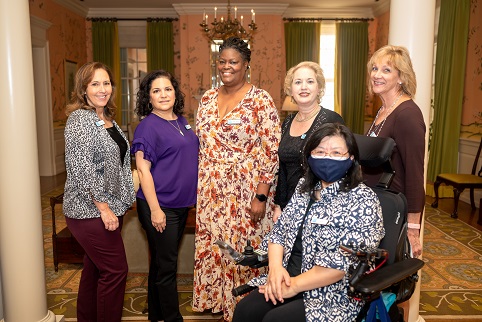

Today we’d like to introduce you to Mary Jane Williams.
Hi Mary Jane, we’re thrilled to have a chance to learn your story today. So, before we get into specifics, maybe you can briefly walk us through how you got to where you are today?
In college, I volunteered for Special Olympics and worked summers at a sleep-away camp for youth and adults with disabilities. Yet, it wasn’t until I was sitting on a beach in east Malaysia that someone from the mother toddler group asked me if I thought if there might be something wrong with my son. At that moment my heart sank and I looked over at my three years old playing by himself, I knew she were right. He played inside while the rest went out. He said one word here or there, while the others were trying to speak in sentences. But what was I going to do? I really don’t remember what anyone said in that moment. I picked up my son, put him in the car and drove home in tears. I felt so alone. I called my doctor and she referred me to a developmental pediatrician. Two months later I sat in his office and heard the words autism. But what was I supposed to do now? He recommended speech therapy and a special school. Where did I find those? When I returned to that mother toddler group, I felt like my son & I were different, and I’m sure that’s how many other parents of children with disabilities feel too. In that moment, the dreams I had for my son’s future seemed bleak. Like other families after an initial diagnosis, my first thought was how was I going to “fix my son”. I remember going to that first school IEP meeting and walking away with a big stack of paper that I didn’t understand.
That’s when I learned there isn’t any guide to help families after that initial diagnosis or to lead them through the special education process. I set about to find the answers and ended up participating in a program called Partners in Policymaking. That forever changed my thinking about disability. I learned that I didn’t need to fix my son, he had gifts and abilities I had been overlooking. I became involved with Family to Family Network, first as a volunteer, then board member, and then as assistant coordinator of the Partners in Policymaking program, while also serving as the organization’s Director of Finance & Administration. Family to Family Network helped me learn that the special education process has a clear map and when I followed it, I could ensure my son got the services & supports he needed to be successful. And guess what? He did! He is working part-time today and we are looking at independent living. I never would have thought that was possible back when we got the initial diagnosis.
In July 2007, the board asked me to be the Executive Director. The previous Executive Director had been a friend & great role model that grew the organization into what it was; how could I live up to her reputation? The board asked me to stay for at least five years. Little did I know that I would still be in this role today! I was instrumental in developing the Texas Project FIRST website, providing accurate & consistent information on the special education process in a bilingual format. It has been an honor to serve and guide so families through the special education process and help them regain a hope for a positive future. I couldn’t do my job without the extensive support of our Family to Family Network team! As our own children have aged, Family to Family has expanded our services beyond special education and now helps with workforce & social security benefits as well.
In addition to serving on various Texas Education Agency stakeholder committees, I serve on The Harris Center Intellectual & Developmental Disabilities Planning & Advisory Council, and the Texas A&M Center for Disability & Development Constituent Advisory Committee, and the SHSU Eleanor & Charles Garrett Center on Transition & Disability Studies Advisory Committee. I am also the Board Secretary for Summerhouse Houston.
I believe that children’s futures should not be dictated by a disability label and that family knowledge is the key to ensuring successful outcomes for their children. My wealth of knowledge on disability issues comes from supporting two children with disabilities become successful adults.
Would you say it’s been a smooth road, and if not what are some of the biggest challenges you’ve faced along the way?
Having a child with a disability is never a smooth road. People think that once you receive a diagnosis that there are lots of services out there for your child. Wrong! Every system, whether health care, education, or social service agencies, has their own rules & regulations a family must figure out to gain support for their children. It was no different for myself. It was scary at first. I didn’t know where to turn. It was hard to figure out what I needed to gain support for my children, Many families isolate themselves when they receive a diagnosis. There were many days I felt like I wanted to crawl under a rock. I cried often because my son screamed. Yet, I will never forget the first time he called me mom.
I was lucky enough that the local authority provided in-home and family support services when my kids were young (3 & 6). An in-home trainer came to our home and provided us with strategies to help my kids with behavior and communication. The school district was fantastic. Now in home and family support is no longer offered. I feel for families because there is no support when they need it most….when their children are young. Now kids & youth with disabilities languish on “waiting lists” for long-term support services. In Texas, that can by 15-16 years. It is frustrating when we ask a family if they know about Medicaid waiver programs and their child is getting ready to graduate. My own son was on a waiting list for a waiver for 11 years. Now families need to put their children on at age three if they expect to have any support after high school. I appreciate the fact that when he graduated, he had access to attendant care and someone to help with employment support. I struggle with knowing so many youth, especially those that may come from under resourced families or from families that speak English as a second language. They often do not have the same support available or miss out because of language barriers.
I completed the Partners program when my oldest was five, so I knew inclusion was important for both my kids. Inclusion of kids with disabilities takes a lot of work by parents, educators, and support staff. I had to learn how to make communication boards. I had to try to think like my kids. I learned what supports they needed and how to make them. I worked constantly on reading and math at home, even when school didn’t send homework. I had to learn to create structure in my home. As I tell many families, while it is very difficult to make inclusion happen, it pays off in the long run. My son was ticketed by the police in 7th grade for assault. He was unsupervised in gym with 30 other 7th grade boys. His IEP clearly stated he was to have support in classes with more than 15 students. While it would have been easy to move him to a segregated placement or to homeschool, I decided to work with the school to ensure they understood I knew what I was talking about and what support he needed. 8th-grade year was wonderful! Inclusion has helped my son’s behavior and communication improved greatly and while he still lives with us, he does work part-time in the community. My daughter, who has a high IQ, had terrible behavior in PreK and Kindergarten when she got frustrated and couldn’t communicate her thoughts. If she was in school today, I am sure there would have been a discussion about moving her to a segregated placement. She went on to graduate Magna Cum Laude from University and has a full-time job with benefits. How different her outcome would have been if I had taken the easy road.
It is easy to have low expectations for our children with disabilities. Yet, when we do so, we allow others to lower their expectations also. All kids with disabilities have something to offer our communities. As parents, we need to believe in our kids, whether they have a disability or not. Education is the only FREE service available to children with disabilities. Adult services are not free, and there are over 150,000 Texans with disabilities waiting over 10 years for long-term services & support. That is why it is imperative for children with disabilities to receive the necessary support and services at school so that they can become contributing members of our community and live meaningful lives after high school.
Alright, so let’s switch gears a bit and talk business. What should we know about your work?
At Family to Family Network, we create success for children & youth with disabilities by empowering their families with information, training, referrals and support. Family to Family helps individuals with disabilities and their family members define and achieve success for themselves and their loved ones. Through guidance and training of parents and young adults, we transform lives by helping them discover possibilities, see the potential where others see barriers and advocate for what they need to achieve their dreams. By changing attitudes and mindsets about disabilities, our organization changes lives to make sure every individual gets to live THEIR best life.
Family to Family helps families understand their rights & responsibilities, while also aiding them in understanding the right words to use, right place to look, right person to connect with when trying to find services & supports for their children with disabilities.
I am proud of my tiny, but mighty, team at Family to Family Network that works to ensure families learn and grow. They take the time to listen to families when they call and provide them with the right support.
Family to Family provides the following FREE services:
• Individualized case management to over 600 annually to help families & individuals navigate and access the needed services for themselves or their loved ones;
• Educational workshops to over 900 in the community which include navigating the special education system and on other disability related issues such as transition to adulthood, Social Security & Work incentives, Medicaid waivers, alternatives to guardianship, and much more;
• A bilingual website, Texas Project FIRST, that receives over 675,000 page views annually;
• Support at over 15+ school district transition or other resource events;
• Early Childhood Transition & Intensive IEP support for low-income, diverse families; and
• Creating a Person-Centered Plan for the Future program.
In 2023, Family to Family hopes to bring back our in-person Annual Conference & Resource Fair in collaboration with Houston Community College VAST Academy.
Family to Family Network has been a listed in the Top Ten Great NonProfits in Houston for many years.
I am most proud of all the individuals with disabilities who started with our organization so many years ago as babies and are now living & working in our community, living meaningful lives.
Let’s talk about our city – what do you love? What do you not love?
I love the fact that Houston is so diverse. I appreciate the variety of restaurants and cultures. There is always something to do. I love that Harris County was ahead of the state in regards to access to voting and got creative during COVID. I love that Houston has a Mayors Office for People with Disabilities which the Mayor works closely with. Not many other big cities have this.
Like everyone I hate the traffic especially now that everyone is heading back to the office. I wish there was more affordable housing for individuals with disabilities and that businesses would open their doors to employing individuals with disabilities. I wish there was easier access to services & supports for families.
Contact Info:
- Website: https://f2fn.org/
- Facebook: https://www.facebook.com/familytofamilynetwork/
- Twitter: https://twitter.com/FamilytoFamily
- Youtube: https://www.youtube.com/user/FamillytoFamilyNetwk
- Other: https://greatnonprofits.org/org/family-to-family-network-1
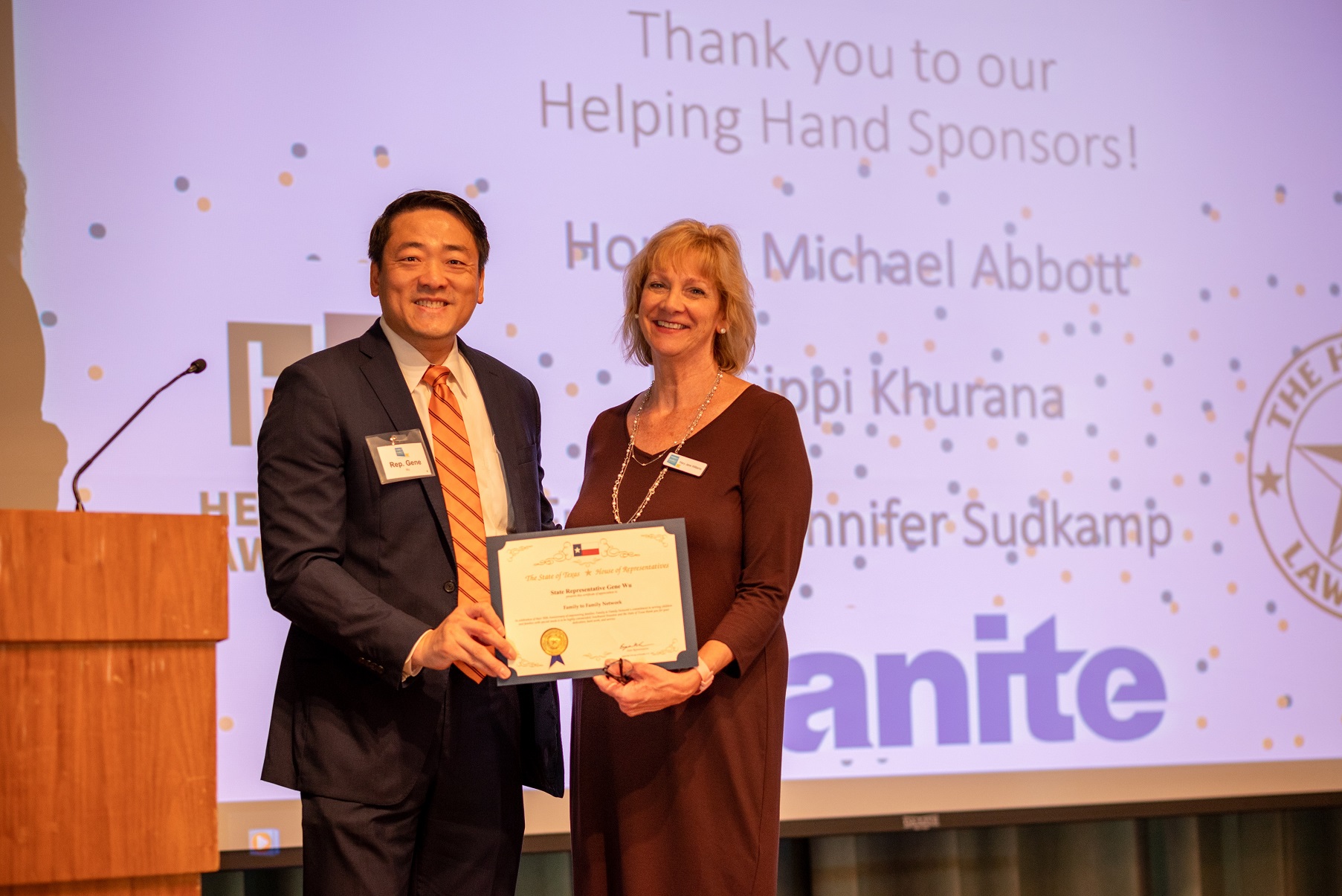
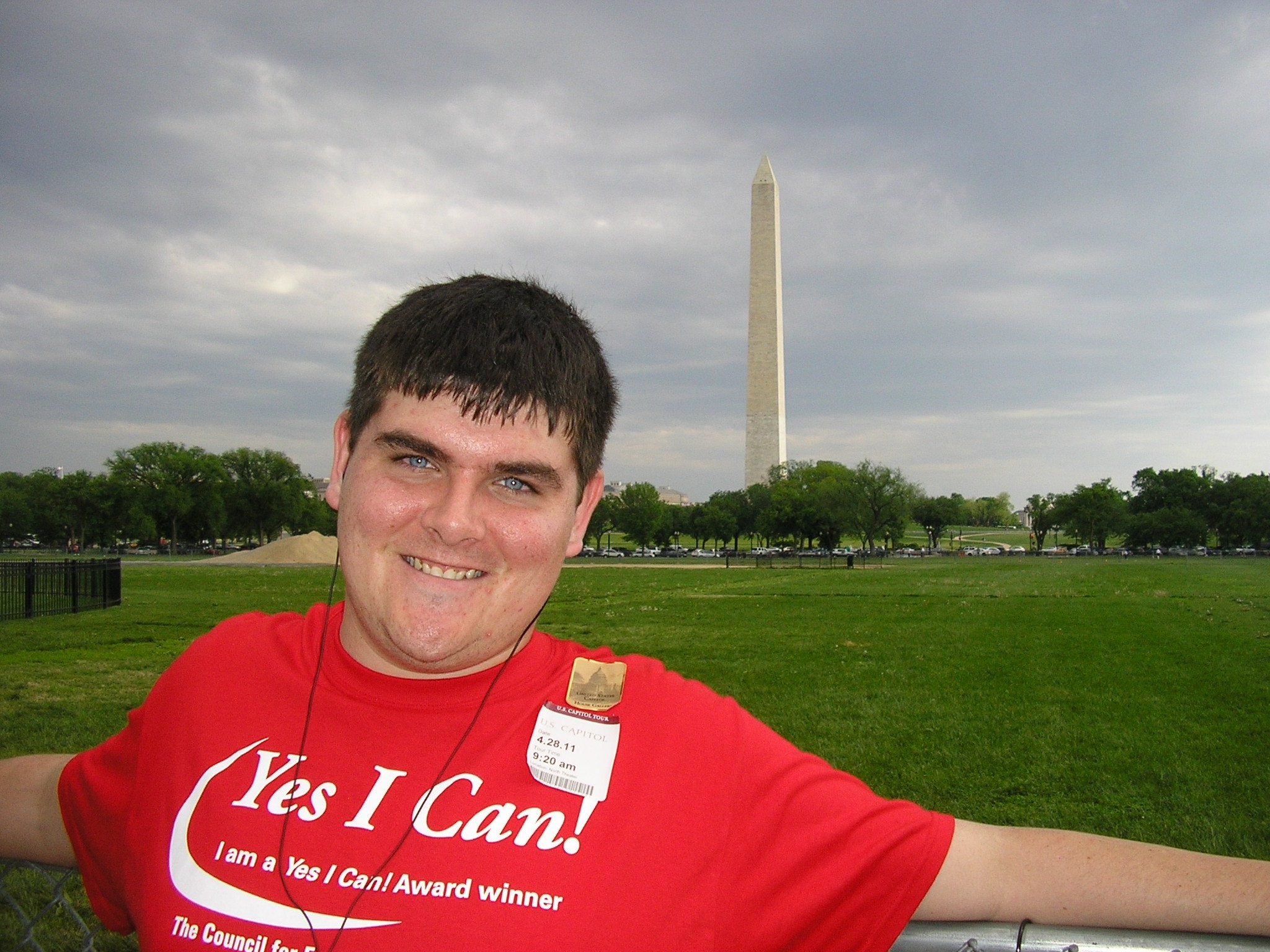
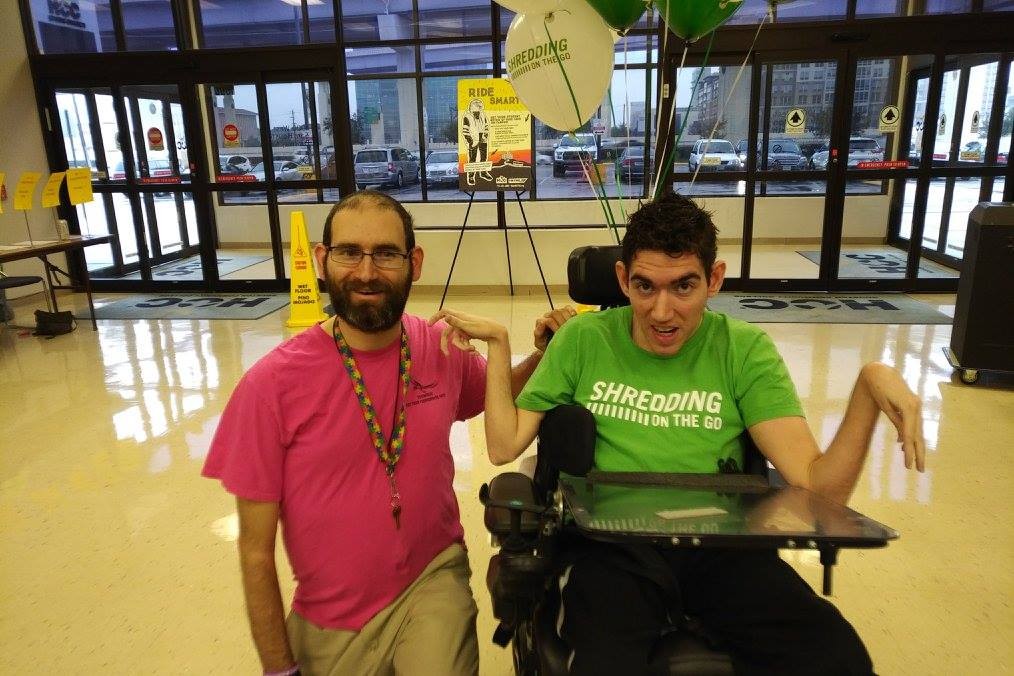
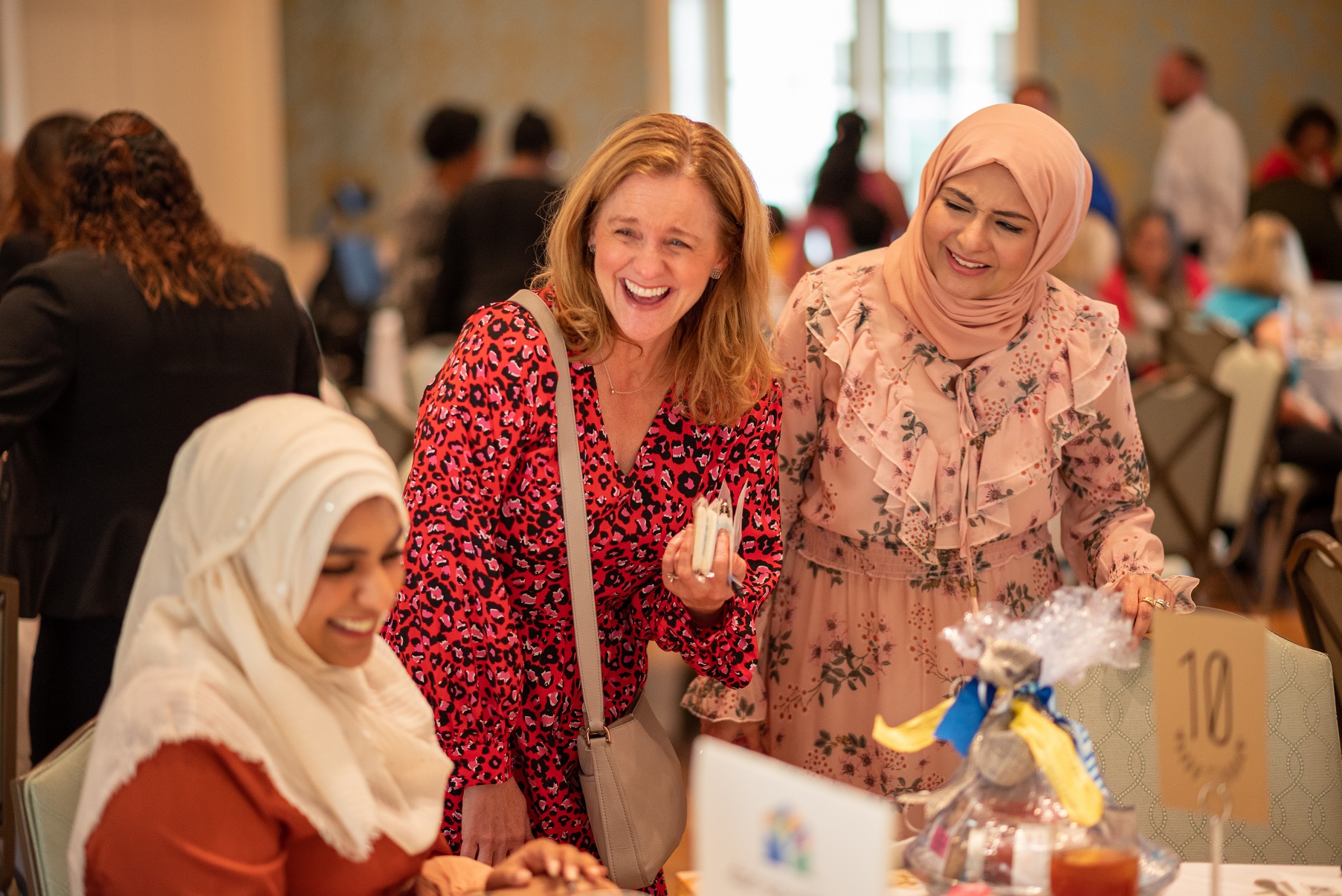
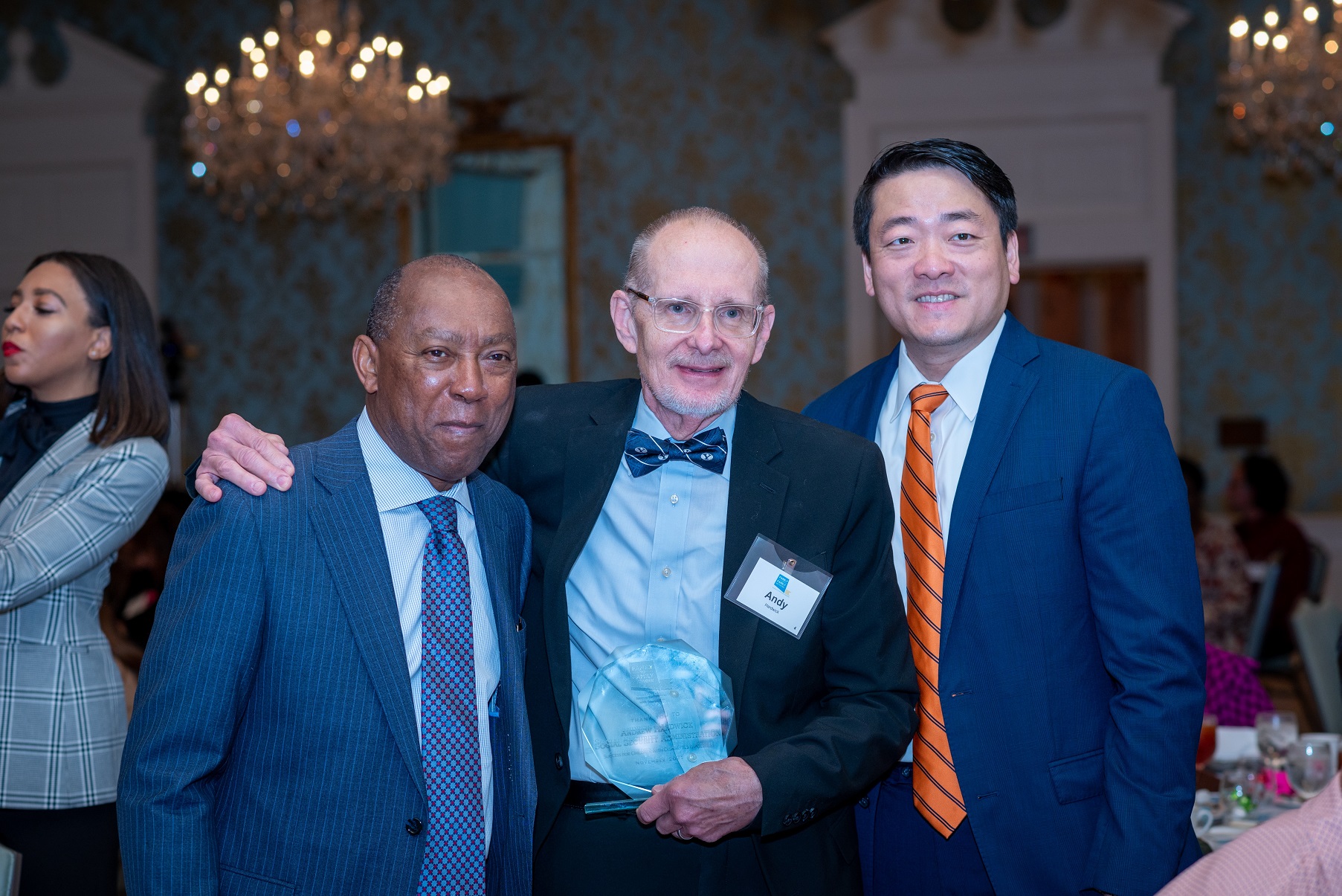
Image Credits:
MJ Williams Juan Mendez










